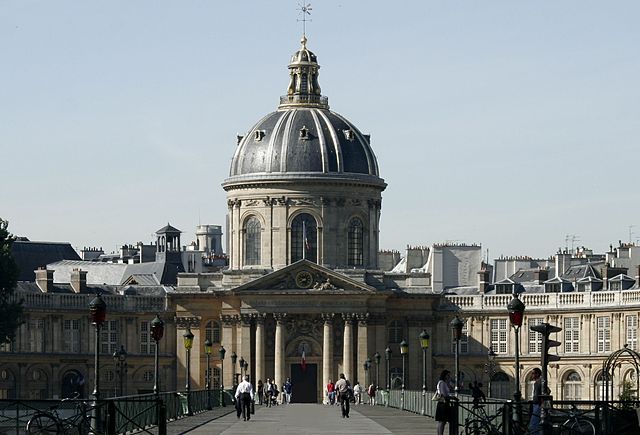Emmanuel Macron: bad language in the Élysée? – Quelle horreur !
President Emmanuel Jean-Michel Frédéric Macron is the youngest President in the history of France. He certainly has a gift for giving gifts. But what about his gift for bad language?
So, who’s been on the receiving end of Macron’s latest bout of gift-giving?
- On his first visit to China, he gave his Chinese counterpart Xi Jinping a retired Garde républicaine horse named Vésuve de Brekka
- When Russian President Vladimir Putin visited Paris, Macron presented him with a sumptuous banquet at Le Château de Versailles
- And when Donald Trump paid a visit to Macron, the French president welcomed him with an impressive military parade. It rivalled the one on the Champs Élysées on Quatorze Juillet
Emmanuel Macron: gifts galore
Gifts for the rich didn’t take Macron long either.
The National Assembly quickly approved a reform package overwhelmingly weighted toward the elite. This included reducing France’s wealth tax by 70 percent – and making capital gains tax a new flat rate of 30 percent.
And there was also a gift for feminists.
Of the 577 newly elected lawmakers, 223 are female. As a result, France has now jumped from 64th to 17th place in the world rankings of females in parliament – and to 6th place in Europe.
This puts l’Hexagone ahead of Britain and Germany.
The English haven’t been forgotten either. Macron is giving the Bayeux Tapestry to la perfide Albion – for a while anyway, so perhaps it’s just a loan.
Bad language: the gift of the gab
President Macron is also gifted in languages. He speaks passable German and, according to some, probably has better English than the American President.
When interviewed on the BBC’s ‘The Andrew Marr Show’, he gave an impassioned and articulate outline of his vision of the future of the European Union.
But quel scandale.
There are numerous reports of bad language being used in the Élysée Palace. The President and his ‘helpers’ use it regularly. In a recent article, La Dépêche reported on this poor state of affairs. Macron and his ‘managers’ use…
jusqu’à l’excès – de termes anglo-saxons.
This has resulted in a novlangue, which includes, amongst a host of others, words like ‘team building’, ‘coworking’ and ‘bonding’. The barbarians of bad language, it seems, are inside – rather than at – the gates.
Hélas, use of these invasive words and bad language has spread widely amongst fonctionnaires.
Guardians of language: upholding tradition
The Académie française is still responsible for the regulation of French grammar, spelling, and literature. It was created in 1635 to:
labor with all the care and diligence possible, to give exact rules to our language.
It was suppressed during the French Revolution, but was later restored by Napoléon. Its forty members, otherwise called les immortels (their average age is over 80) are each elected by fellow members, and hold office for life.
They are dedicated to preventing the pernicious spread of bad language – such as English terms or anglicismes.
Any attempt to reform the French language has always been soundly rejected. In 1694, the Académie chose to adhere firmly to the tradition
that distinguishes men of letters from ignoramuses and simple women.
It recently warned that gender-inclusive spellings pose a “mortal danger” to the purity of French. And the four-century-old language police have infuriated feminists.
They have officially condemned the politically correct, gender-neutral version of French now being adopted by President Emmanuel Macron’s government—and the civil service and academics.
English onslaught: the bad language battle
Although English and French have been swapping words for a long time, the 20th century saw an English onslaught. In IT or l’informatique, English words like ‘email’, ‘cloud’ and ‘open-source’ are assimilated so quickly that the language flics can’t keep up.
Here are a few examples of how they’ve tried (and failed) to combat so-called bad language:
Ne dites pas ‘dark net’, mais « internet clandestin ».
N’utilisez plus ‘data scientist’, mais « expert en mégadonnées ».
But it’s a battle already lost…
- The whole world says email – why bother with ‘courrier électronique’?
- The same applies to smartphone as opposed to ‘téléphone intelligent’
- And using a ‘tablette’ seems much easier than a ‘bloc note’
- Why use ‘fureteur’ when ‘browseur’ slides off the tongue so much easier?
- ‘Weekend’ seems to promise so much more than ‘fin de semaine’
- Who wouldn’t rather listen to a podcast than a ‘baladodiffusion’?
- It doesn’t take much to work out why ‘télé’ or telly is universally preferred in both languages
- And wouldn’t tourists be much more comfortable at a bed and breakfast rather than a ‘gîte touristique’ ?
Language evolution: horror or happiness?
Unfortunately for the purists, this is only the tip of an enormous iceberg of anglicisms. With the President et al. habitually using such bad language, even global warming isn’t going to arrest the trend.
It seems that words pinched from colloquial, everyday, conversational English are super cool!
Mais quelle honte !
Does bad language pose a threat to the purity of the French language or is it a simple evolution of usage? We’d love you to share your thoughts and discussions in the comments box below!
Image credits
1. Macron circular, via Wikipedia
2. Élysée Palace, via Wikipedia
3. Macron caricature, by DonkeyHotey via Flickr
4. Académie française, via Wikipedia
5. Map of the Channel, via Wikipedia











The French Academy has won a few battles–the French say “ordinateur” instead of “computer,” for example. But I agree that it’s a losing battle.